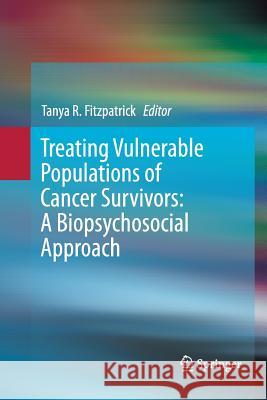Treating Vulnerable Populations of Cancer Survivors: A Biopsychosocial Approach » książka
topmenu
Treating Vulnerable Populations of Cancer Survivors: A Biopsychosocial Approach
ISBN-13: 9783319812670 / Angielski / Miękka / 2018 / 160 str.
Kategorie:
Kategorie BISAC:
Wydawca:
Springer
Język:
Angielski
ISBN-13:
9783319812670
Rok wydania:
2018
Wydanie:
Softcover Repri
Ilość stron:
160
Waga:
0.26 kg
Wymiary:
23.39 x 15.6 x 0.97
Oprawa:
Miękka
Wolumenów:
01
Dodatkowe informacje:
Wydanie ilustrowane











